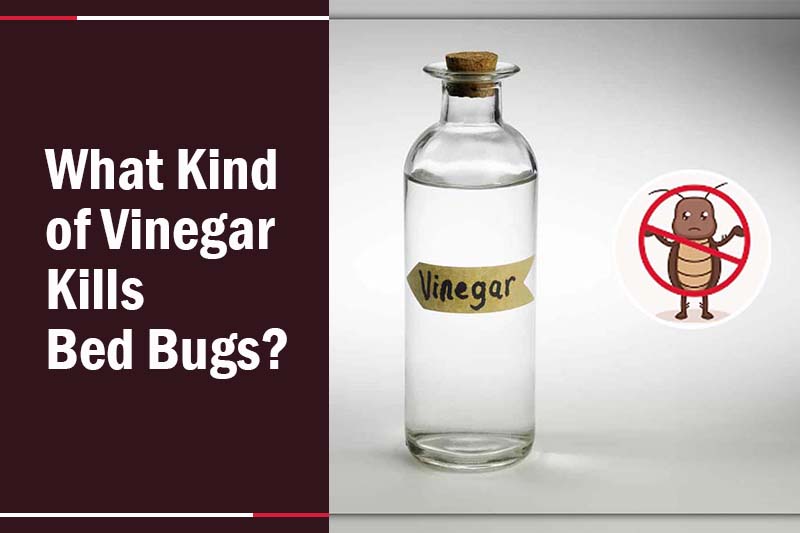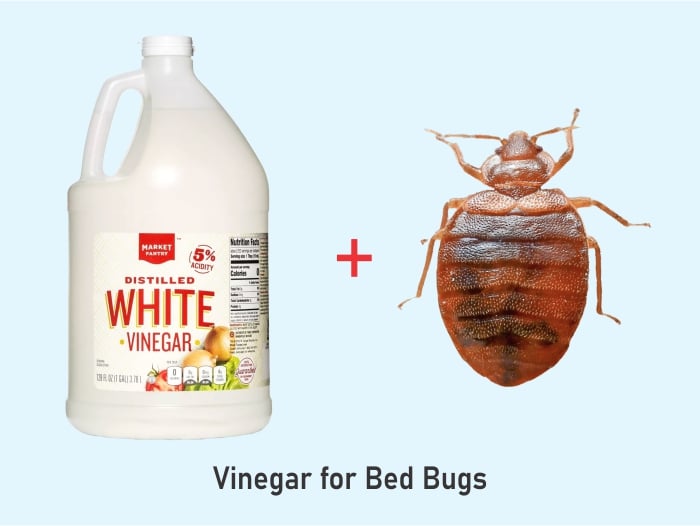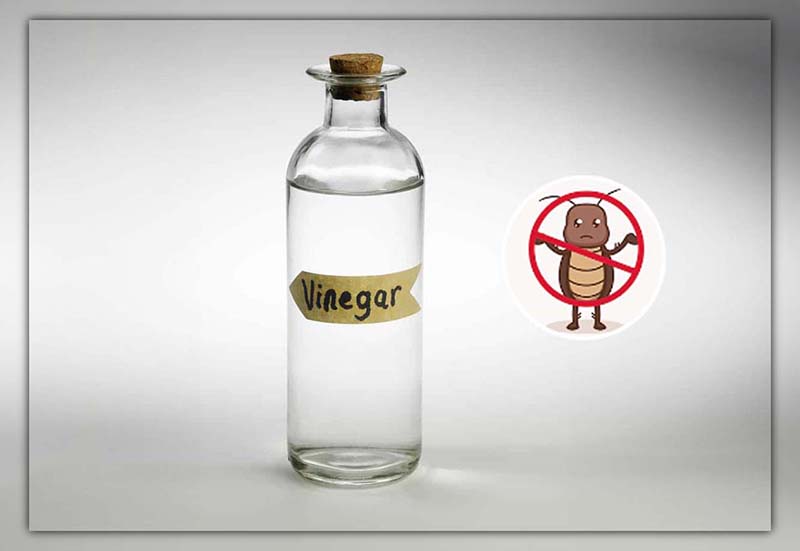“Does Vinegar Kill Bed Bugs?”
In this blog, we’ll unravel the mysteries behind vinegar’s potential bed bug-busting prowess.

1. Does vinegar kill Bed Bugs?
Yes, vinegar does kill bed bugs, but it has to be a strong solution of vinegar. Vinegar contains an acid called acetic acid.
This acid is made from the complete fermentation of alcohol. The acidic content of vinegar is strong enough to disrupt their nervous systems.
2. What kind of Vinegar kills Bed Bugs?
Among vinegar options, white vinegar stands out as the most effective for eradicating bed bugs. Its potent nature, attributed to acetic acid, swiftly eliminates bed bugs upon contact.
Both white vinegar and apple cider vinegar share this acetic acid, proving toxic to bed bugs and aiding in their extermination.
Whether through direct spraying or immersion, utilizing white vinegar becomes a practical approach to tackle bed bug infestations.

3. How to use Vinegar to kill bed bugs
To employ vinegar against bed bugs, follow these steps:
- Fill a mist bottle with concentrated white vinegar, enhancing its effectiveness by adding lemon juice to the mix.
- Conduct a thorough inspection of areas where bed bugs are suspected, using a flashlight to examine cracks, crevices in walls, and gaps in furniture. Check your mattress and bed frame as well.
- Upon locating bed bug hiding spots, meticulously spray the vinegar solution in those areas.
- Continue the spraying routine for several weeks, closely monitoring these areas for any resurgence of bed bugs. Consistency is key to ensuring their eradication.
4. What can be mixed with vinegar for bed bugs?
There are many things that can be mixed with vinegar to kill bed bugs. Some of these include:
- Lemon juice: Lemon juice is acidic and can help to dissolve the exoskeleton of bed bugs, making them more vulnerable to vinegar. To use this method, mix equal parts of vinegar and lemon juice in a spray bottle and spray it on the bed bugs and their hiding places.
- Salt: Salt is a natural desiccant that can dehydrate bed bugs and their eggs. To use this method, mix one cup of salt with one gallon of vinegar in a bucket and stir well. Then soak a cloth in the solution and wipe it on the infested areas.
- Borax: Borax is a mineral that can damage the digestive system of bed bugs, causing them to starve. To use this method, mix one cup of borax with one gallon of vinegar in a bucket and stir well. Then sprinkle the powder on the infested areas or use a spray bottle to apply the solution.
- Rubbing alcohol: Rubbing alcohol can kill bed bugs by suffocating them and disrupting their communication. To use this method, mix one part of rubbing alcohol with two parts of vinegar in a spray bottle and spray it on the bed bugs and their hiding places.

5. Pros and Cons of using Vinegar on bed bugs
|
Advantages |
Disadvantages |
|
Can be used for short-term relief |
The smell is terrible and long-lasting |
|
The acidic content of vinegar is strong enough to disrupt their nervous systems |
You might not kill bed bugs completely but only push them into hiding |
|
It is cheap and available almost everywhere |
Some furniture could be damaged due to the low pH of vinegar |
|
This method is very safe. You can spray as much as you need and no one will be harmed as they would with toxic chemical sprays |
It will have little effect when there is a major infestation |
|
It is safe to use in homes with children, dogs, and cats |
May be toxic to some reptilian pets |
FAQ
Can Apple cider vinegar kill bed bugs?
Yes, apple cider vinegar can kill bed bugs if they are drowned in it. The percentage of acetic acid in apple cider vinegar is 6 percent which is enough to kill bed bugs on contact.
Will vinegar kill bed bug eggs?
No, vinegar cannot kill bed bug eggs. The eggs have a protective layer that prevents the acetic acid in vinegar from penetrating and destroying them.
However, vinegar can prevent the eggs from hatching if they are submerged in it.
Conclusion
Vinegar kill bed bugs by suffocating them and disrupting their communication, but it is not a very effective or long-term solution to control them. Vinegar may not reach all the bed bugs in their hiding places or prevent them from laying eggs. There are other natural remedies that are safer and more effective than vinegar, such as baking soda, diatomaceous earth, or boric acid.
If you want to learn more about how to get rid of bed bugs and other pests, check out our blog at Pestweek.

Calina Mabel has over 15 years of experience in the field of journalism and communications. Currently, Calina Mabel is the Content Writer for categories such as Cockroach, Ants, Bed Bugs, Mosquito, Rodent, Termite, and Flies on Pestweek.com. She aims to build content for these categories with a focus on providing valuable and accessible information to readers, in order to create the world’s largest knowledge community about Pests.
All content written by Calina Mabel has been reviewed by Emily Carter.

